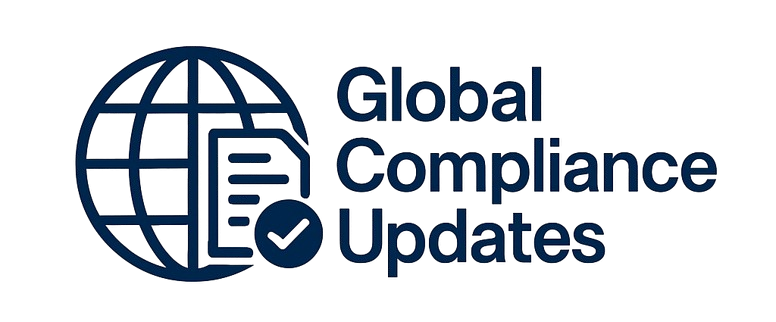The coronavirus disease (COVID-19) is impacting employers all across the US. Every organization should have a plan of action in place concerning operating in an environment dictated by the virus and its implications. This webinar by Jennifer Raphael Komsky, Esq. will provide legal and practical guidance on various workplace COVID-19 issues.
The Families First Coronavirus Response Act (FFCRA) and the Coronavirus Aid, Relief and Economic Security Act (CARES Act) have created new rights such as expanded family and medical leave and emergency paid sick leave that employers need to comply with. Employers today are also struggling with navigating worksite closures, layoffs, furloughs, and pay reductions. During the webinar, Jennifer will explore the impact of workforce reductions on CARES Act PPP loan forgiveness, what to do if an employee tests positive for COVID-19, and key employee benefits provisions under the CARES Act.
AREA COVERED
- New emergency paid FMLA leave and paid sick leave requirements
- FFCRA coverage scope, limits and exceptions for employers and employees
- Interrelation of FFCRA leave with regular FMLA leave
- Practical implementation issues, costs and risks to employers
- OSHA and CDC workplace recommendations
- Employment considerations in dealing with known or possible exposure
- Recurring ADA accommodation, confidentiality and medical screening issues
- FLSA and other wage and hour requirements regarding working from home
- Employment issues associated with shelter-in-place and similar orders
LEARNING OBJECTIVES
- Return to work considerations including testing, employee protection issues (including workers compensation considerations), paid leave, and ADA/Accommodation issues if an employee has underlying health issues.
- Employees refusing to return to work? What can and should you do?
- What to do if an employee (or someone close to them) tests positive for COVID or displays COVID symptoms.
- Other strategies for creating a new normal.
WHO WILL BENEFIT?
- Business Owner
- Human Resources Professional
- In-house Counsel
- CEO COO or any other individual charged with ensuring compliance with labor and employment laws.
- New emergency paid FMLA leave and paid sick leave requirements
- FFCRA coverage scope, limits and exceptions for employers and employees
- Interrelation of FFCRA leave with regular FMLA leave
- Practical implementation issues, costs and risks to employers
- OSHA and CDC workplace recommendations
- Employment considerations in dealing with known or possible exposure
- Recurring ADA accommodation, confidentiality and medical screening issues
- FLSA and other wage and hour requirements regarding working from home
- Employment issues associated with shelter-in-place and similar orders
- Return to work considerations including testing, employee protection issues (including workers compensation considerations), paid leave, and ADA/Accommodation issues if an employee has underlying health issues.
- Employees refusing to return to work? What can and should you do?
- What to do if an employee (or someone close to them) tests positive for COVID or displays COVID symptoms.
- Other strategies for creating a new normal.
- Business Owner
- Human Resources Professional
- In-house Counsel
- CEO COO or any other individual charged with ensuring compliance with labor and employment laws.
Speaker Profile
 Jennifer Raphael Komsky
Jennifer Raphael Komsky
Jennifer Raphael Komsky earned her B.S. in 1994 from the University of California, Santa Barbara and earned her J.D. degree in 1997 at the University of the Pacific, McGeorge School of Law. She was admitted to the State Bar in 1997. Current memberships include the State Bar of California and the Los Angeles County Bar Association.Prior to specializing in employment law, Jennifer practiced in the areas of medical malpractice defense and business litigation. She has focused on employment law exclusively for over 15 years, defending employers in all phases of litigation before State and Federal Courts and administrative agencies. Jennifer regularly …
Upcoming Webinars


Effective Communication: Ensuring Clarity, Accountability a…

2-Hour Virtual Seminar on Workplace Investigations 101: How…

Employers Should Prepare for Immigration Raids in 2026! Thi…

AI for Excel Professionals: Enhancing Productivity with Cha…

The Importance of the first 5 seconds when presenting

Negotiating Skills For Professional Results - Winning Strat…

Workplace Behavior in 2026: Tackling Conflicts and Incivili…

FDA Recommendations for Artificial Intelligence/Machine Lea…

Validation Statistics for Non-Statisticians

Bootcamp for New Managers and Supervisors: Develop These Es…


Interactive dashboards & analytics in Excel


Enhancing Project Management with Storytelling Techniques

4-Hour Workshop on Data Simplified: Sorting and Filtering, …

Creating Your 2026 Marketing Strategy

The Language of Leadership: Is Your Communication Style As …

ChatGPT for Innovative Business Advisory Services for Accou…


Utilizing A Proven Process When Conducting Sensitive, Inter…

How to Write Procedures to Avoid Human Errors

Human Factors Usability Studies Following ISO 62366 and FDA…

Why EBITDA Doesn't Spell Cash Flow and What Does?

Mastering DAX Patterns in the Era of AI & Copilot

Establishing Appropriate Quality Metrics and Key Performanc…


IRS Form 1099 Reporting: Compliance Requirements

FDA QMSR Explained: How the QMSR Replaces the QSR

How to Manage the Legal Landmine of the FMLA, ADA and Worke…

Understanding EBITDA – Definition, Formula & Calculation

Tattoos, hijabs, piercings, and pink hair: The challenges …

FDA Compliance And Laboratory Computer System Validation

Medical Device Hazard analysis following ISO 14971




Excel Spreadsheets; Develop and Validate for 21 CFR Part 11…

Excel + AI: The Smart User's Guide to Faster, Easier Work w…
